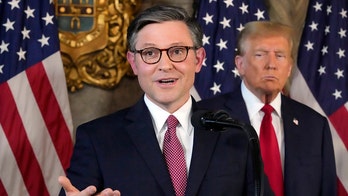Partisanship and "selection bias" are distorting the news landscape, making it essential for individuals to escape their ideological bubbles and embrace a more balanced perspective.
In the tumultuous political arena that precedes the upcoming Trump v. Biden debate, discerning the truth amidst a sea of conflicting information has become paramount. Americans across the ideological spectrum have expressed grave concerns about the impact of media bias and its potential to undermine informed discourse.
The concept of "selection bias" posits that individuals tend to consume news and information that aligns with their preexisting beliefs. As a result, our perception of reality can become distorted, leading us to overlook or reject facts that challenge our assumptions. This is exacerbated by the proliferation of partisan news outlets and social media echo chambers, which further reinforce our biases.

Media Bias: A Threat to Informed Debate and Civic Engagement
The consequences of this fragmented media landscape are far-reaching. It hinders our ability to engage in productive debates and compromises our capacity for critical thinking. When we are only exposed to viewpoints that mirror our own, we become less tolerant of dissenting opinions and more likely to dismiss them as "fake news."
This poses a significant threat to civic engagement, which relies on informed and nuanced discussions. Without a shared understanding of facts and perspectives, it becomes impossible to find common ground and address pressing societal issues.

Media Bias: A Threat to Informed Debate and Civic Engagement
The upcoming debate between Trump and Biden has ignited further concerns regarding media bias. While fact-checking is essential for holding candidates accountable, it must be conducted in a fair and impartial manner. Partisan moderators who interrupt candidates or challenge their statements without providing a balanced perspective could undermine the integrity of the debate and further erode public trust in the media.
It is imperative that we escape our ideological bubbles and seek out information from diverse sources. By exposing ourselves to a broader range of viewpoints, we can challenge our assumptions, develop a more nuanced understanding of the world, and engage in more meaningful discussions.

Media Bias: A Threat to Informed Debate and Civic Engagement
This is not to say that we should abandon our beliefs or adopt a stance of moral relativism. Rather, it emphasizes the importance of critical thinking, intellectual humility, and the willingness to consider alternative perspectives.
In the spirit of Lincoln and Douglas's renowned debates, let the candidates speak their minds freely. Allow them to present their arguments and engage in respectful dialogue, without the interference of biased moderators. Only then can we hope to have an informed and productive debate that contributes to a more enlightened and cohesive society.









